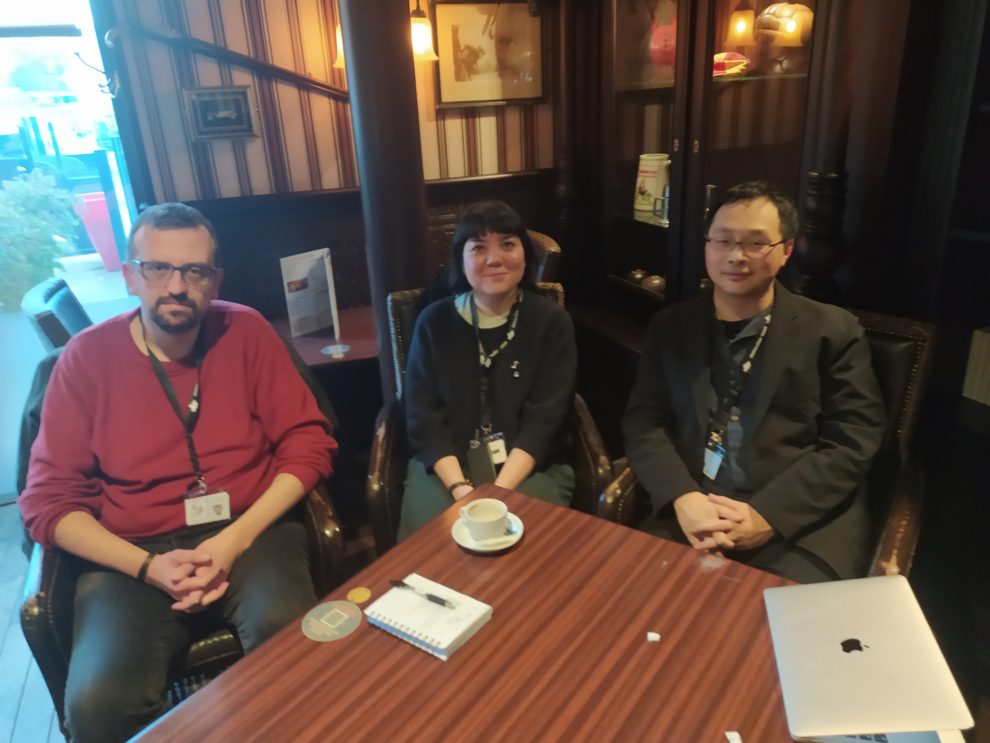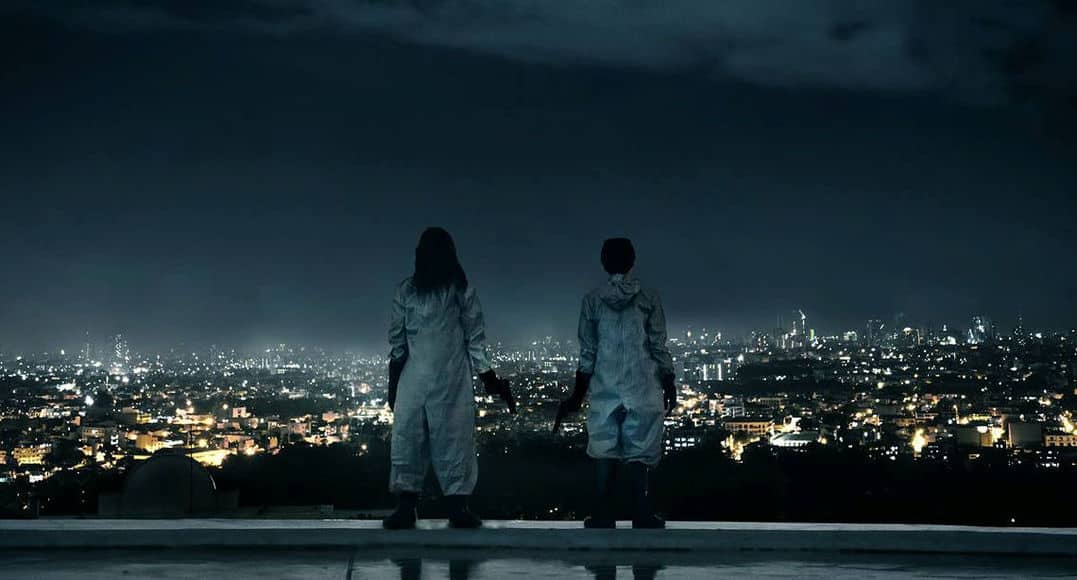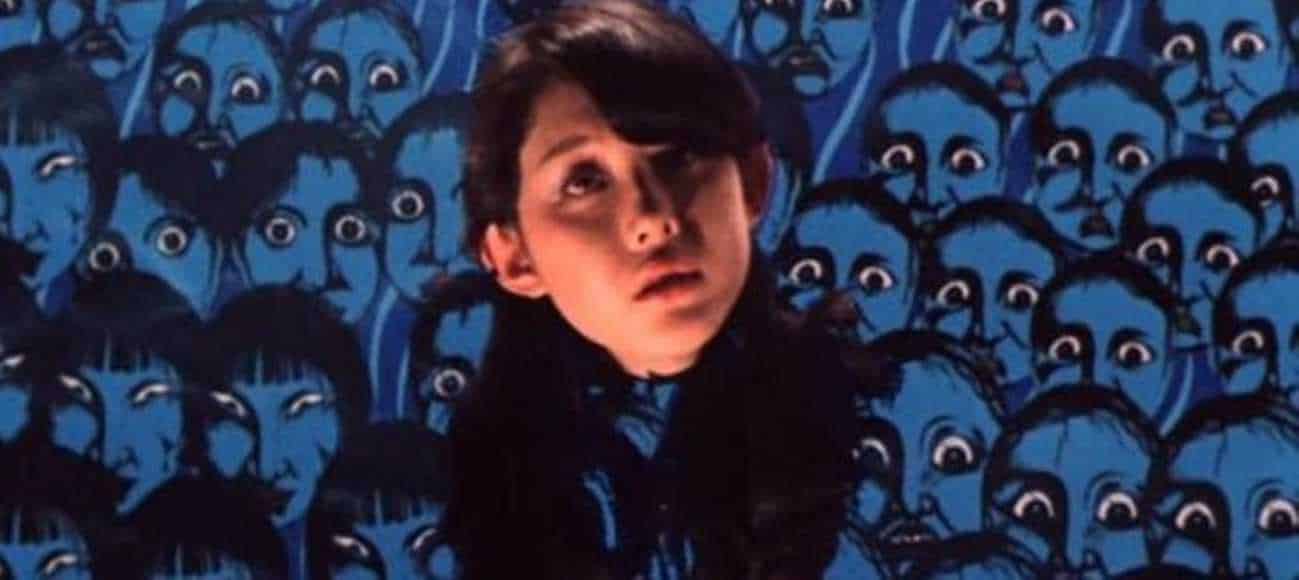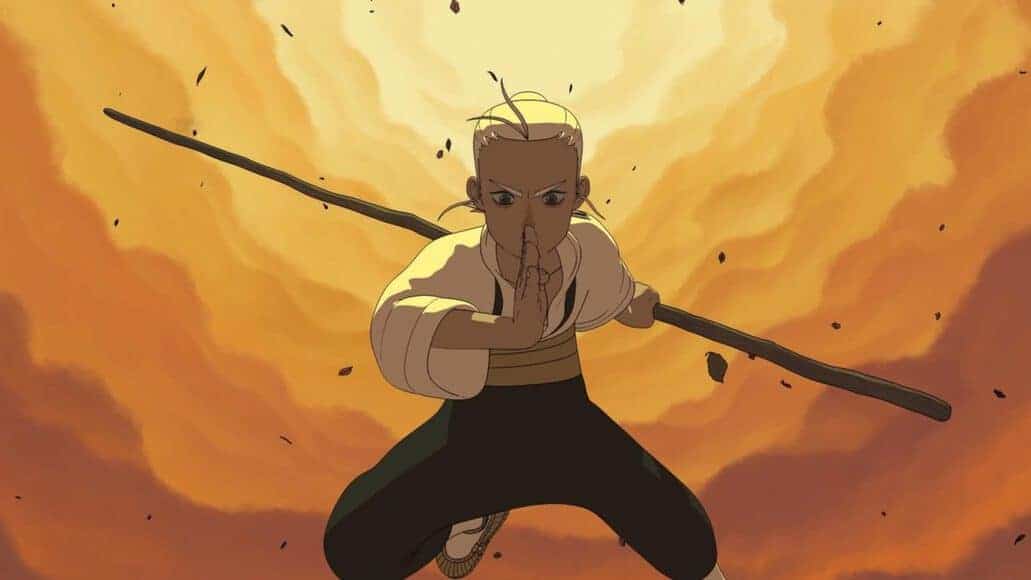Koji Fukada was born in Tokyo in 1980. In love with European cinema, he is very influenced by Marcel Carné and Victor Erice. While studiyng Litterature at the Taisho University, he took lessons of cinema direction at the Tokyo Film School, where one of his teacher was Kiyoshi Kurosawa. Fukada directed his first feature film in 2001, “The Chair”. In 2020, he is back with “The Real Thing”, based on the comic by Mochiru Hoshisato, and presented as a premiere in Vesoul, in two parts.
On the occasion of his presence in FICA Vesoul, we speak with him about rewatching his older films, his preference between Japanese and French cinema, the effect theater had on his filmmaking, Kanji Furutachi and Bryerly Long, and many other topics.

Translation by Lea Le Dimna
This morning, you watched “Human Comedy in Tokyo”, a film you shot in 2008. How does that make you feel?
It does not matter if it is an older or recent movie, when I watch my own work, I always want to correct some things. In this particular one, I would like to improve the sound, but I still like the scenario. During the shooting, a lot was happening, so I could not shoot it the way I wanted to, which is always frustrating.
I know you like French cinema very much, but do you prefer that or Japanese?
I cannot choose between French and Japanese, because it is not about nationality, not about where the movie is from. When I first discovered cinema, I watched a lot of French movies, and I liked them, not because they are French, but because they are good. There are two movies I liked especially when I was younger, “Children of Paradise” and “The Spirit of the Beehive”, and I did not care about who shot them, I just found them artful and interesting, and that is the way I became a cinephile. At that time, I saw a lot of movies, from the US, Spain, Italy, Greece, I just like cinema.
Do you think that your movies are more appreciated by Japanese or French audiences?
Regarding the critics, I would say the same but regarding audiences, I feel my movies are more appreciated here in France, than in my own country.
Why do you think that is?
In France, people can see a lot of movies from their childhood, and there is also education about cinema, which does not exist in Japan. Here you can see the films of Yasuhiro Ozu for example, but in Japan, if your parents are not cinephileσ, as in my case, you can only go to cinemas and see mainstream movies, Hollywood blockbusters, so maybe that is the reason.
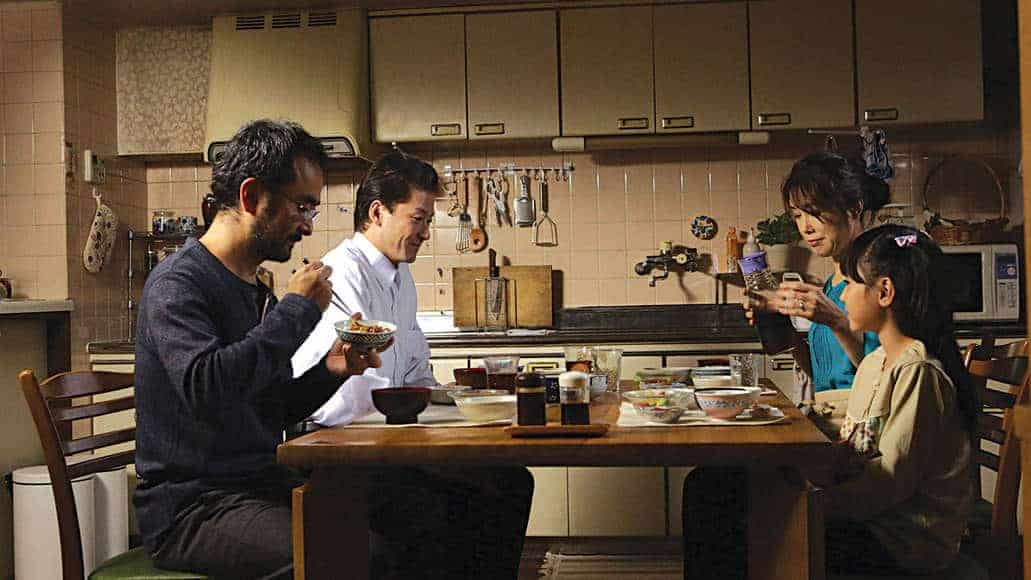
How do you feel your experience with theater has changed you as a director?
When I was a child, my father loved cinema; in our house, we had more than 600 VHS of movies. I was used to watching a lot since my childhood, something that continued when we got cable. Then I became a student and started going to the cinema physically, for the first time. As a cinephile, just like many others I think, I did not respect theater. When I was at the university, I shot some self-produced films and, as all my friends are cinephiles too, I felt it was a really closed world, where we only talk about very specific aspects of cinema and I felt really frustrated about it. Among my friends then, there was Minako Inoue, who was a member of the Seinendan theater troupe and also the protagonist of my first film, “The Chair”. At one point, she asked me to go and see one of the plays they were working on. I found it very interesting, particularly the writing of the dialogues, which I thought was pretty good. The Seinendan group have one particular characteristic; they want to completely delete any kind of dramatic exaggeration and instead focus on daily conversations and simple words, they want all the exchanges in the play to be natural. It was quite rare for Japan in the world of theater at the time. In Seinendan's works, the lines were simple, but the subtext was really intricate and well constructed, and I was shocked, in a good way by that. When I entered this troupe, my fantasy was to conciliate the Eric Rohmer way of shooting and leading the actors and the Seinendan way of acting. I imagined that if I conciliated the two aforementioned, then we would have something new in Japanese cinema. Because when a Japanese cineaste wants to shoot like Eric Rohmer, it is always very superficial, because they only think of the charming, nice, trendy, French love comedy and I wanted to do something completely different.
Do you think you succeeded?
It was a real pleasure doing it, but I am not sure if I succeeded completely, only the audience can say if it was a success or not.
In what ways would you say you have changed as a director, from the beginning of your career until now?
I think the intentions are the same. Regarding “The Chair” , for example, I am a bit embarrassed of people watching it now, but the intentions and the essence of my cinema is still there, and they have lasted until today. And there is a sense of continuity between what I am shooting now and what I shot when I was 30. Most of the projects I thought of and wrote back then, I am actually shooting them now. That being said, there are two things I am more careful about now, the distance between the protagonists and the audience, and not including any kind of propaganda in my movies.
You mean political propaganda?
When we speak about propaganda, inevitably the discussion goes towards Nazis for example, and the truth is, there was a time when cinema was a tool of propaganda. The opinions of the filmmaker become visible in their films and I do not want to influence the audience in any way, that is what I mean by the word. I want them to have their own vision. For example, when you are shooting a film about a Japanese family, you portray the wife cooking, the husband eating and the children around the table, and if you shoot them in a warm way, essentially you dictate the opinion of the audience. I do not want to do that.
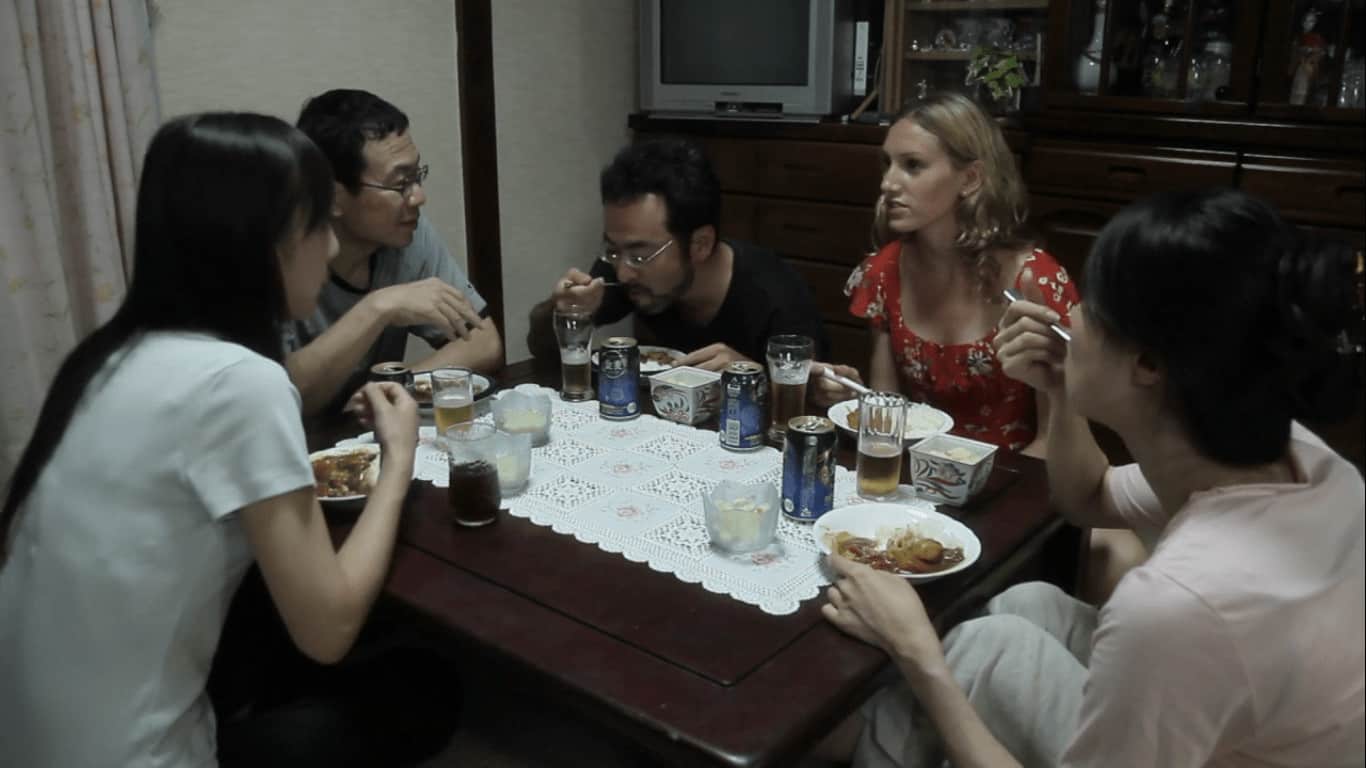
Can you tell us a bit about your many collaborators with Kanji Furatachi?
He was a member of the Seinendan group, and that is where I met him. He is older than me but he really loves cinema and when we met, we immediately wanted to make a film together. What is interesting about him is that he shares his opinion, for the script for example, which in Japan is very unusual. He is into debate and contradiction and I love to collaborate with him, because we can discuss. He has one principle, he always wants to be realistic, he wants to fit in realism as much as he can, even in “Hospitalite” for example, where he plays a role far away from how he is in real life, he wants to play it as realistically as possible.
In “Hospitalite” he was the outsider who comes and disrupts a family, but in “Harmonium” he has the opposite role. Can you tell me a bit about that?
As you probably know, “Hospitality” was a “pilot” for “Harmonium”. I already had the idea about the latter in my mind, but at the time, I could not collect enough money, so I shot “Hospitalite” to get more funds and shoot it later. As you mentioned, Kanji Furutachi was the “invader” in the first film, but I did not want the second to be a remake, that is why I wanted to put him in another position. Also, at the time in Japan, Furutachi was more known for the kind of role he plays in “Hospitalite”, of the disturber, therefore I wanted to give him the opportunity the portray something different, and himself, he also had the desire to play the other part, and that is why he was so good in the role.

I had an interview with him at one point, and I asked him why he does not have more protagonist roles. He answered maybe because he is not metrosexual enough. Is that your opinion also about actors in Japanese cinema?
I think he is right, because in big Japanese productions, the main roles are reserved for those who are small and fit, and somewhat neutral in appearance. But I am determined to make a film with Kanji Furutachi as the protagonist (laughter)
And how about your collaboration with Bryerly Long?
She also has a small part in “Au Revoir L'ete”, so she has been in three films of mine. I first met her in the Seinendan troupe, where she was also a member of. I was looking for an actress for the role of Anabelle in “Hospitalite”, and I could not find any one to play it. At the time of the film, she was not yet in the troupe, she had just arrived in Japan from Great Britain, and I heard a rumor in the Seinendan about a young woman who was in Oxford and can speak Japanese fluently, and she would be arriving in Japan. When she was on the plane to Japan, I sent her an email and talked to her about “Hospitalite”. As soon as she arrived in Tokyo, I met her and we had an interview and her Japanese level was so good that she could read all the kanji in my script. Actually, I asked her to tone it down for the film, because her Japanese was too good. The main setting of “Hospitalite” is an old Japanese house and there are a lot of different people coming in and she is, essentially the embodiment of the project because she was born in the US, raised in France, and then went to Oxford. Her father was a diplomat and her mother was working for Amnesty International and she was all over the world when she was young. She went to Bosnia and she can speak Bosnian, she went to Vietnam and she can speak Vietnamese, she is really impressive: she was perfect for the role of Anabelle. At the end of the film, she is singing, and the song is originally a Persian poem by Omar Khayyam and the scene was really made for her, because she translated the lyrics of the poem herself in six or seven languages, and then she sang it.
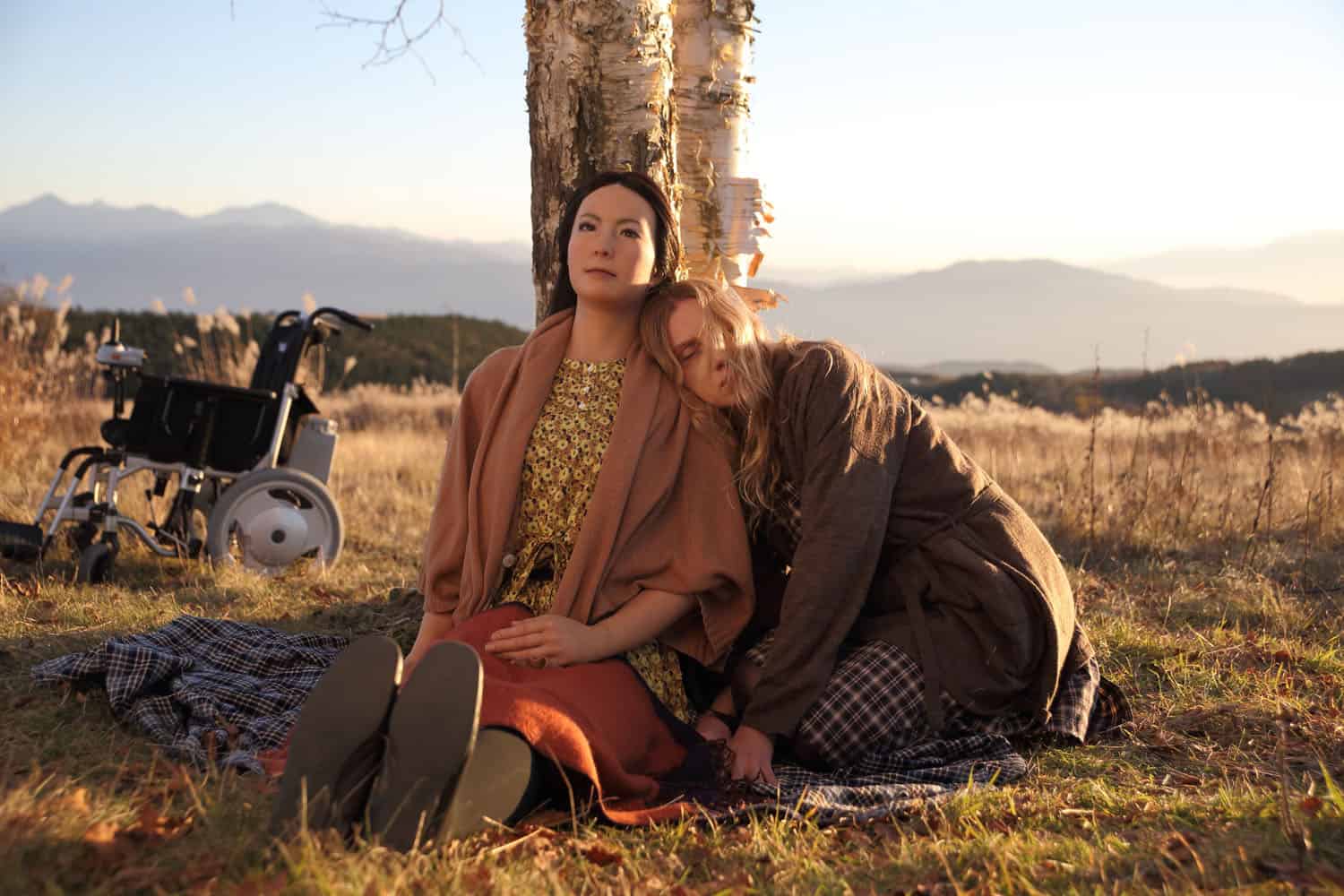
Can you tell me a bit about “Sayonara” came to be?
Originally, the idea of the film was Oriza Hirata's, who wrote a stage play with an android. The play was quite short, about 15 minutes long, but I thought I could make a movie out of it, particularly regarding its aspect about how people would interact with androids. I thought this part was really cinematic, and so I decided to make it a feature. Bryerly was already in the play so I cast her to play in the movie, with the same applying to Geminoid F.
Japan does not welcome immigrants at all, but in “Sayonara” you have the Japanese people being forced to become immigrants. Is that an ironic comment, in essence?
Of course you can say it is ironic, but initially, the film was not political, I just wanted to describe the feeling of solitude, that was the real motif of the film. That is why, progressively, there are less and less people around the woman and the android. I had them emigrate so they end up by themselves. As you mentioned, Japan is really harsh towards immigrants and immigration in general, very few foreign people enter the country every year but I wanted the protagonists to be aware that wherever you live, you can be an enemy. If you realize this concept, maybe you can be more tolerant.
Are you working on any future projects?
I am in the post-production stage of my next feature film, and will finish probably in two months, so I am hoping it will screen this year. Maybe there will be some news about it in Berlin, maybe the title, but for now, I cannot say any more.


